The below steps should be followed by authors before, during, and after full paper submission
(1) Manuscript Submission
The manuscript, in English, containing abstract (no more than 250 words), keywords (3-6 keywords), introduction, background information and literature, problem statements, methodology (along with a further description of used tools, techniques, and practices), solution mechanism, research work novelty, and final conclusion shall be submitted by the submission platform using assigned template within defined submissions deadlines.
-
A- Before paper submission
Please ensure you have read author instruction, conference policies and procedures for attending, presentation, and publication. Each submission should adhere to conference publication guidelines and recommended layout. -
B- During paper submission
The corresponding author submits a research paper on behalf of co-authors and handles all correspondence related activities. The research paper should be submitted online through the Online Submission Platform for peer-review and publication. -
C- After paper submission
After successful submission of the manuscript, a confirmation email will be sent to the corresponding author (and co-authors) with submission information and further instructions. The review process will take 1-3 months depending on the conference and potential reviewers’ availability. Please use the paper id for any future communication with us. -
D- Review process
All submitted full papers pursue single-blind review by two potential reviewers who have experience in the related research area and topic. Reviewers will submit review reports within 2-4 weeks with no conflict of interest with authors and research. This review report will only be used for internal use by the editorial office, technical and scientific committees.
(2) Paper Layout Format and Style
Authors should follow the following layout and guidance while submitting a full paper:
- Language: English
- Pages: Within 10 pages
- Words: 3000-6000 words
- Abstract: Within 250 words
- Keywords: Within 6 keywords
- Headings and subheadings: Numbered in order 1, 1.1, 1.1.1, 1.1.1.1, 1.2, 1.2.1
- Tables and figures: High resolution (recommended 300 px) with tables and figures captions and source (reference).
- References: REPA Citation Style or APA style arranged in alphabetical sequence (use free citation software: https://www.zotero.org/download/).
- File format: .doc or .docx (as per the provided template)
- Page layout: Normal margin, A4 page size, Portrait, One column (as per the provided template)
- Font type and size: Times New Roman, 10 (paragraph), 12 bold (1st level heading), 11 bold (2nd level heading), 10 bold (3rd level heading), 10 italics(4th level heading).
- Paragraphs: Spacing (before 6pt, after 6pt, line spacing 1 lines), No justify alignment.
- Author details: Name, designation, organization, department, address, country, email, and contact number of all authors in hierarchical order as it should appear in the final publication.
It strongly recommends that all authors (corresponding authors, co-authors, contributing authors) include their affiliation and email address in their manuscript.
(3) Plagiarism and Copyright
Plagiarism, in which one misrepresents ideas, words, computer codes or other creative expressions as one’s own, is a clear violation of such ethical principles. Plagiarism can also represent a violation of copyright law, punishable by statute. Plagiarism manifests itself in a variety of forms, including. Plagiarism will be monitoring continuously, submitted manuscripts with more than 40% plagiarism result will be REJECTED before handing the review process.
The corresponding author warrants submitted manuscript is a wholly original work of author(s); that authors are the sole creator and owner of the manuscript with a sole and exclusive right to dispose of his/her authored work and to assign every right, including copyrights therein; that neither the Manuscript created/authored nor any part thereof is in the public domain (without Publisher’s permission.
Publishers have had the exclusive right to use the Manuscript and that publication has not granted, and will not grant, any right, license or privilege to any third party with respect to any use of the Manuscript.
(4) Improvement and Modification Right
Authors agree to, and do hereby assign all rights of manuscripts’ modification, edit, and improvement and any means by the Scientific Committee and Proofreading Editors after acceptance.
(5) Assignment of Rights
Authors agree to, and do hereby assign all rights, title and interest, including copyrights, in and to the manuscript to Publishers. When the manuscript is accepted and ready for publication, it will be published at the publisher’s own expense, under the Publisher’s full copyright at any name and publication in its sole discretion elects.
The Publishers reserve the right to make all decisions related to publication options, layout and all other aspects of preparing the publication as they relate to suitability to the publishers’ system, procedures, and desired formats (paper, proceeding, book chapter, book, etc.).
Furthermore, the Publishers maintain the full right to refuse to publish any accepted manuscript without a completed, signed and dated Copyright Transfer Agreement (After acceptance of manuscript this form will be provided).
(6) Presentation Delivery
The IETSO 2020 will be conducted in adapt of international conference code and standard. Therefore, presenting regular and poster papers is mandatory. Therefore, this conference facilitates hybrid presentation delivery onsite and offsite (online) from distance. All distance/online presenters are requested to be coordinated with online tracks/sessions’ technical assistant.
Download Abstract Template
Abstract Submission
Full Paper Submission
